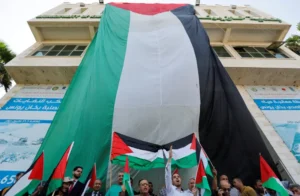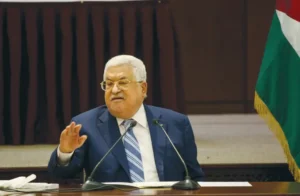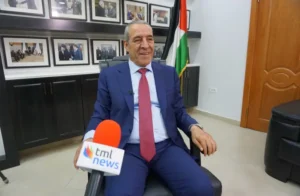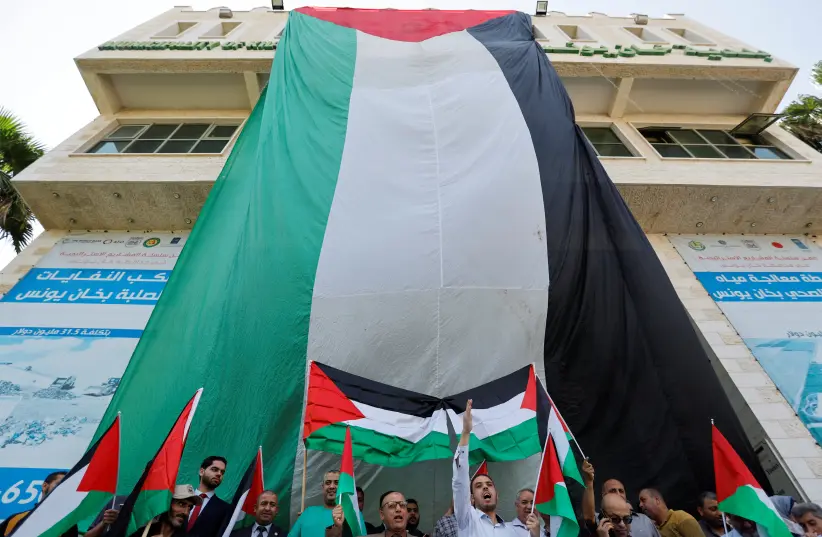The “National Rescue Initiative” by Nasser al-Kidwa seeks major reforms and changes in the Palestinian political system and institutions.

In a direct challenge to the veteran Palestinian leadership, a group of Palestinian personalities on Tuesday launched a new initiative for major reforms and changes in the Palestinian political system and institutions.
Titled “National Rescue Initiative,” the new plan was announced by Nasser al-Kidwa, a former PA foreign minister and envoy to the United Nations.
A nephew of former Palestinian leader Yasser Arafat, al-Kidwa was expelled from the ruling Fatah faction’s Central Committee last year after he formed his own list to participate in the parliamentary elections. He has since been very critical of the Palestinian leadership.
The parliamentary elections, which were supposed to take place in May 2021, were called off by Palestinian Authority President Mahmoud Abbas.
The presidential elections, which were slated for July last year, were also canceled by Abbas.

Palestinians want “transformation, renewal”
Some 65 Palestinian figures are said to be behind the National Rescue Initiative, described as a “transitional body for transformation and renewal.”
These figures include prominent PLO official and spokeswoman Hanan Ashrawi, leading human rights activist Mamdouh al-Aker, and veteran political analyst Hani al-Masri.
The announcement of the initiative came amid growing criticism of the Palestinian leadership by many Palestinians over a number of issues, including rampant financial and administrative corruption and anarchy and lawlessness.
Abbas, in addition, has long been facing sharp criticism for refusing to share powers or consult with other Palestinians about crucial and sensitive issues affecting the Palestinians.
Abbas’ successor
Abbas’s recent decision to appoint his confidant Hussein al-Sheikh as Secretary-General of the PLO – a job that boosts the latter’s chances of succeeding the 87-year-old PA president – has also been strongly criticized by many Palestinians, including senior and veteran members of the PLO and Fatah.
Al-Sheikh, 61, is currently considered the No. 2 in the Palestinian leadership.
“We present this initiative over one year after the cancelation of the presidential and legislative elections and the insistence in February this year on the convening of the PLO Central Council (PCC) in a manner that was legally and politically flawed,” read a statement issued by the figures behind the new drive.
The PCC was convened by Abbas despite protests by some of its members and a decision by a number of Palestinian factions to boycott the meeting, which was held in Ramallah.
Abbas’s critics claimed that the main purpose of the meeting was to allow him to tighten his grip on the Palestinian leadership and promote his loyalists, including al-Sheikh, to key positions.
“Amid the continued, severe deterioration of all aspects of Palestinian life, which has been met with political complacency, this initiative is an effort at preventing imminent and total collapse,” the Palestinian personalities wrote. “We seek to push toward a national mobilization that can affect deep, extensive change to the Palestinian political system and rebuild its institutions, with the aim of empowering our people to confront the massive and national existential threats that we face.”

The signatories warned that the Palestinians were experiencing “a state of decline unprecedented since the Nakba (catastrophe, reference to the creation of Israel in 1948), absence of democracy and good governance alongside unbridled Israeli oppression, murder and settler-colonialism, in addition to fragmentation among the Arab countries and waning regional and global support.”
The initiative describes the ongoing dispute between Fatah in the West Bank and Hamas in the Gaza Strip as a “toxic division.” The Palestinian people, it adds, “now faces an insistence by the group in power (the Palestinian Authority leadership) to remain in place and reap the benefits. This is happening as the Palestinian cause disappears from the international agenda, with the exception of some timid efforts at de-escalation and improving living conditions, as part of what is termed “economic peace.”
According to the initiative, the deteriorated state of Palestinian affairs has prevented the Palestinians from facing various challenges. “To make up for years of Palestinian complacency, all of us must take the initiative and innovate a new and creative path toward change,” the figures said in their statement.
They said that their vision for extensive change includes the rebuilding of Palestinian institutions, especially the PLO; the restoration of “national unity” between Fatah and Hamas and an end to division (between the West Bank and Gaza Strip); the formation of a new government “not subject to unjust preconditions”; and a political transition and the mechanism necessary to achieve that.
The initiative says that the political program of the Palestinian leadership and institutions should state that the Palestinian people are the “indigenous people of the country and rightful owners of the land, possessing the natural, historical right to statehood and that the Palestinian people adhere to their national identity, to their right to struggle to end military occupation, to exercise their right to self-determination and national independence in the State of Palestine on the 1967 borders, with Jerusalem as its capital, whether through a political settlement or otherwise.”
The initiative calls for the formation of an interim body responsible for convening a national dialogue and implementing its outcomes. This body’s tenure would be limited to one year and its members would “reflect the Palestinian reality as it truly exists at present, including the recent changes that took place ahead of the canceled elections.”

